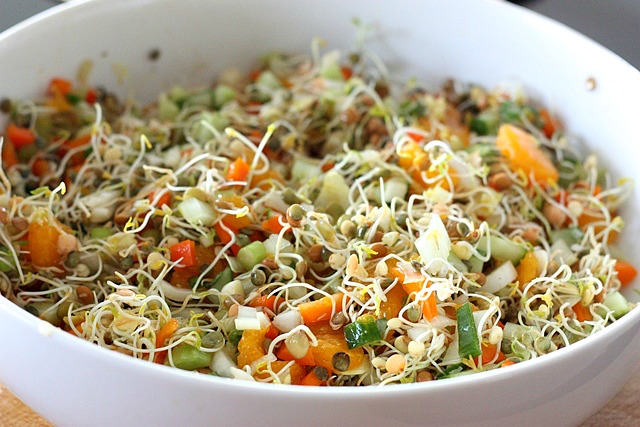There are many vegetables that are nutritionally superior, less expensive, and better for the environment than lettuce. According to researchers, this vegetable is a top source of food waste and foodborne illness which means that not all fruits and vegetables are good for the environment.

Table of Contents
Lettuce Isn’t That Nutritious Compared to Some Other Vegetables
Lettuce is virtually all water, eating lettuce provides fiber and can keep you from eating other less healthy foods. The truth is that the lettuce in your salad is not providing you with that much nutrition.
Say Goodbye to Lettuce, Hello to Sprouts
Try this experiment the next time you order a salad: Imagine your salad without the lettuce, radish, and cucumber. They are nutritionally and calorically irrelevant. What stays in your picture is a small pile of croutons and cheese, with lots of ranch dressing and a few carrots, is that right?
Don’t worry, there is a simple way to supercharge your salad, just replace your lettuce with sprouts- that’s the key switch!
Sprouts offer vitamins, minerals, and antioxidants. With this being said, sprouts offer some of the highest levels of nutrition available and that means that sprouts are far better than lettuce.
Fresh broccoli sprouts are more powerful than whole broccoli. Three-day-old broccoli sprouts contain from 10 to 100 times the amount of glucoraphanin (a chemoprotective compound) found in mature broccoli. This compound also has a protective effect against toxic pollutants and also has shown to protect against cancer.
In their initial phase of growth, sprouts contain more concentrated amounts of nutrients and that’s why you need to eat far less amount of sprouts compared to a mature plant.
When sprouting seeds, nuts, beans, and grains you get:
- Higher vitamin content
- Higher enzyme content
- Increased essential fatty acid and fiber content
- Increased bioavailability of minerals and protein.
Growing Your Own Sprouts: Good for the Environment
Choose your seeds and provide a healthy soil to plant them in. Make sure the soil you purchase does not contain biosolids. They are a type of fertilizer that began being “recycled” into food crops when realized that throwing them into rivers was an environmental disaster.
